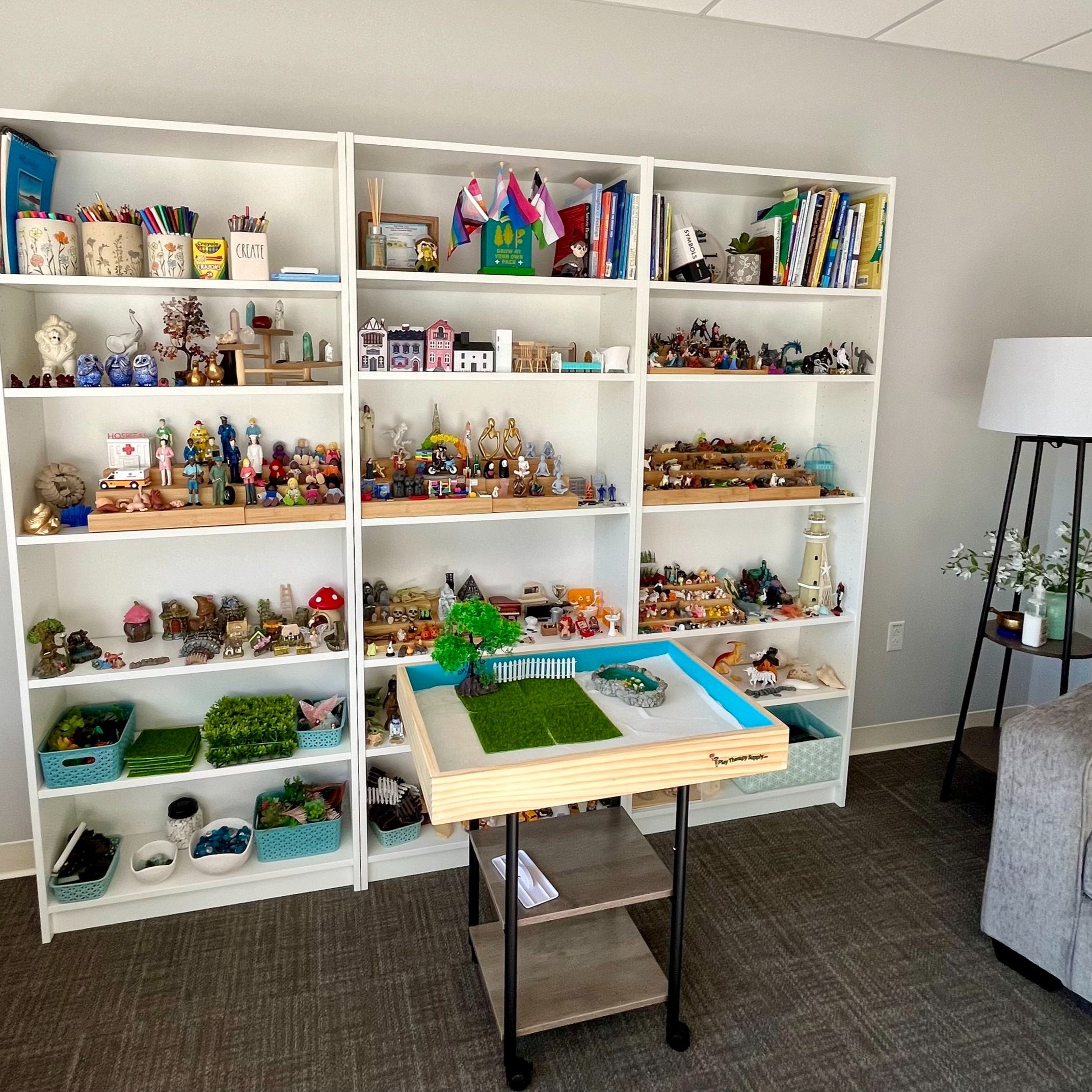What is Child/Adolescent Therapy?
Child and adolescent therapy, also known as child counseling or talk therapy, is a specific form of individual counseling that focuses on addressing the emotional, behavioral, and developmental needs of children and teenagers. Children and adolescents face a variety of challenges unique to their age group including, anxiety, depression, trauma, emotional regulation issues, family conflicts, academic struggles, bullying, social difficulties and identity issues.
Licensed therapists or counselors are well-versed in working with young clients and utilize a variety of evidence-based therapeutic modalities that are tailored to meet the unique needs of children and adolescents. Some types of child therapy include play therapy, art therapy, music therapy, family therapy, cognitive-behavioral therapy (CBT), and dialectical behavior therapy (DBT).
Some common goals of child and adolescent therapy include building healthy coping skills, improving emotional regulation, enhancing communication and social skills, improving self-esteem, reducing harmful behaviors, and developing a greater sense of self-awareness and resilience.
In most cases, parents or caregivers play a crucial role in the therapeutic process, offering support, feedback, and enforcement of techniques learned within sessions. Child therapy can serve as an important space for children and adolescents to learn autonomy, navigate challenges, and foster healthy emotional and social development.Adjusting to major life changes, such as marriage or parenting
Who can benefit?
Children and adolescents who are dealing with a variety of emotional, behavioral, or developmental challenges may benefit from individual therapy. Some common reasons this age group seeks therapy include:
Anxiety disorders, such as generalized anxiety, social anxiety, or separation anxiety
Attention-deficit/hyperactivity disorder (ADHD)
Autism spectrum disorder (ASD)
Behavioral problems or conduct disorders
Depression or mood disorders
Family conflicts or transitions, such as divorce or relocation
Grief and loss
Learning disabilities or academic struggles
Peer-related issues such as bullying
Self-esteem issues or body image concerns
Trauma or post-traumatic stress disorder (PTSD)
Some signs a child or adolescent may be struggling with their mental health include difficulty coping with stressors, changes in behavior, academic decline, social withdrawal, persistent sadness or mood swings. Child and adolescent therapy provides them with a compassionate space to navigate their thoughts, feelings, behaviors and challenges alongside a mental health professional.
Online therapy, also known as virtual therapy or telehealth therapy, is available to individuals in NJ, NY, PA, SC, and FL. For children and adolescents, your therapist will use their discretion to decide if online therapy is the most effective treatment method. Click here for more information on online therapy and how to decide if it is right for you or your loved one.

